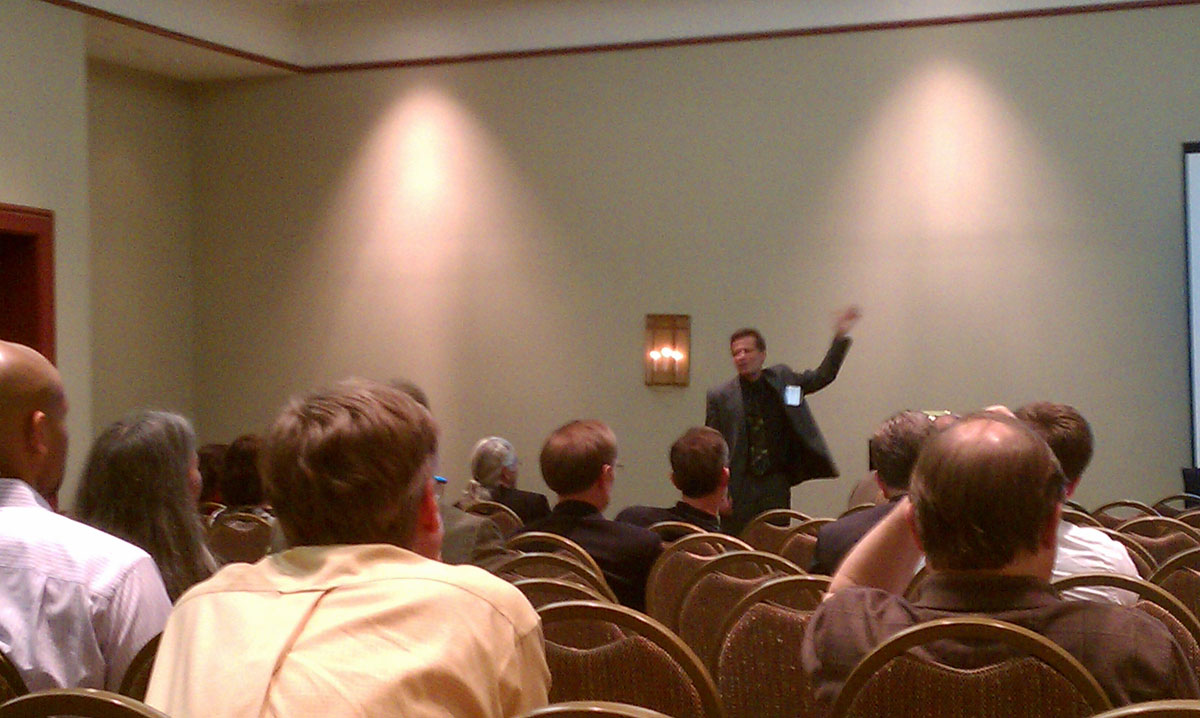February 29, 2012 Vol. 5, Issue 2
What if NASA’s information and data were open by default?
To some, this is probably an uncomfortable proposition. In 2009, President Obama’s Open Government Directive called for government agencies to set a new standard for accountability through openness. NASA’s Open Government Team is dedicated to promoting and implementing agency-wide transparency, participation, and collaboration.
Open Government team members Sean Herron (Headquarters), Ali Llewellyn (Johnson Space Center), Scott Goodwin (Headquarters), and William Eshagh (Ames Research Center, via Skype) touched on a number of initiatives in progress:
- Enabling citizen science (e.g. Zooniverse and Moon Zoo)
- Making NASA data visible (data.nasa.gov)
- Making all of the open source software the NASA has launched over the last 30 years available (code.nasa.gov)
- Facilitating collaborative/innovative workspaces across the agency
- Holding the International Space Apps Challenge, which will take place in April 2012
“Every solution we come up with has to be three-pronged to address policy, technology, and culture,” said Llewellyn. For example, said Herron, “If we create the policy and don’t have the technology, no one will use it. If you have the technology, but the culture isn’t ready for it, no one will use it.” All three elements must be present to be successful.
Enhancing discoverability of data and knowledge and using open source software to become more nimble and efficient with its online architecture have also been long-standing goals for the Open Government Team. What if NASA could leverage the power of the open source movement, the public, and the agency’s expertise to help the agency better utilize its resources and decrease cost? The conversation touched on a number of questions:
- How do you verify the integrity of data and code from outside the agency?
- How do you incentivize this sort of collaboration and openness in the workforce?
- What are legal and security concerns that need to be addressed and mitigated?
- How does the agency hold itself accountable when implementing new technologies, policies, and initiatives in a timely manner?
“We seek to tap the collective knowledge, genius, and experience of everyone on the planet,” said Llewellyn. “What if NASA was open by default instead of closed?” Open data, software, spaces, and projects facilitate increased public interest and participation in NASA’s missions, and extend the life of projects and knowledge long after formal close-out.
Learn more about the Open Government Team.
Read more about the Open Government Initiative.






